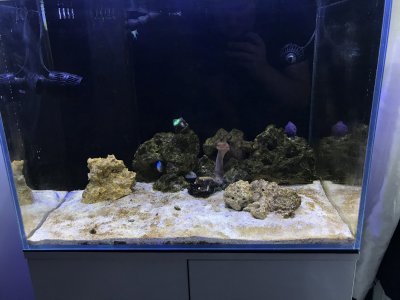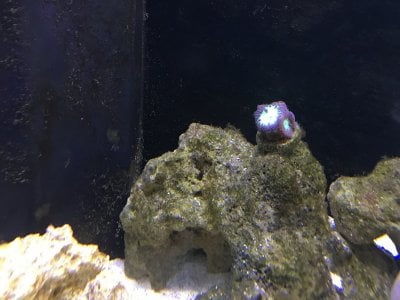Hello all,
I have got a small outbreak of Dino at the moment and need suggestions on how to get rid of it. I have looked online and there have never been a real answer for myself, I have heard a blackout seems to work for a few days then that’s it, Dino x and other medication have side effects and my outbreak isn’t at that stage yet.
my parameters are;
PH-8.2
Ammonia-0
Nitrite-0
Nitrate-40/80ppm
Phosphates-0.5 was at 1 but has dropped the last few tests
I am still doing water changes and trying to Manual Remove the Dino. I also have gha on the rock work which I have been removing it too.
I was going to reduce the nitrate and phosphates to see if that help with the issues but have seen online that isn’t a good idea and most likely increase the breakout.
any ideas would be very much appreciated cheers


I have got a small outbreak of Dino at the moment and need suggestions on how to get rid of it. I have looked online and there have never been a real answer for myself, I have heard a blackout seems to work for a few days then that’s it, Dino x and other medication have side effects and my outbreak isn’t at that stage yet.
my parameters are;
PH-8.2
Ammonia-0
Nitrite-0
Nitrate-40/80ppm
Phosphates-0.5 was at 1 but has dropped the last few tests
I am still doing water changes and trying to Manual Remove the Dino. I also have gha on the rock work which I have been removing it too.
I was going to reduce the nitrate and phosphates to see if that help with the issues but have seen online that isn’t a good idea and most likely increase the breakout.
any ideas would be very much appreciated cheers




















